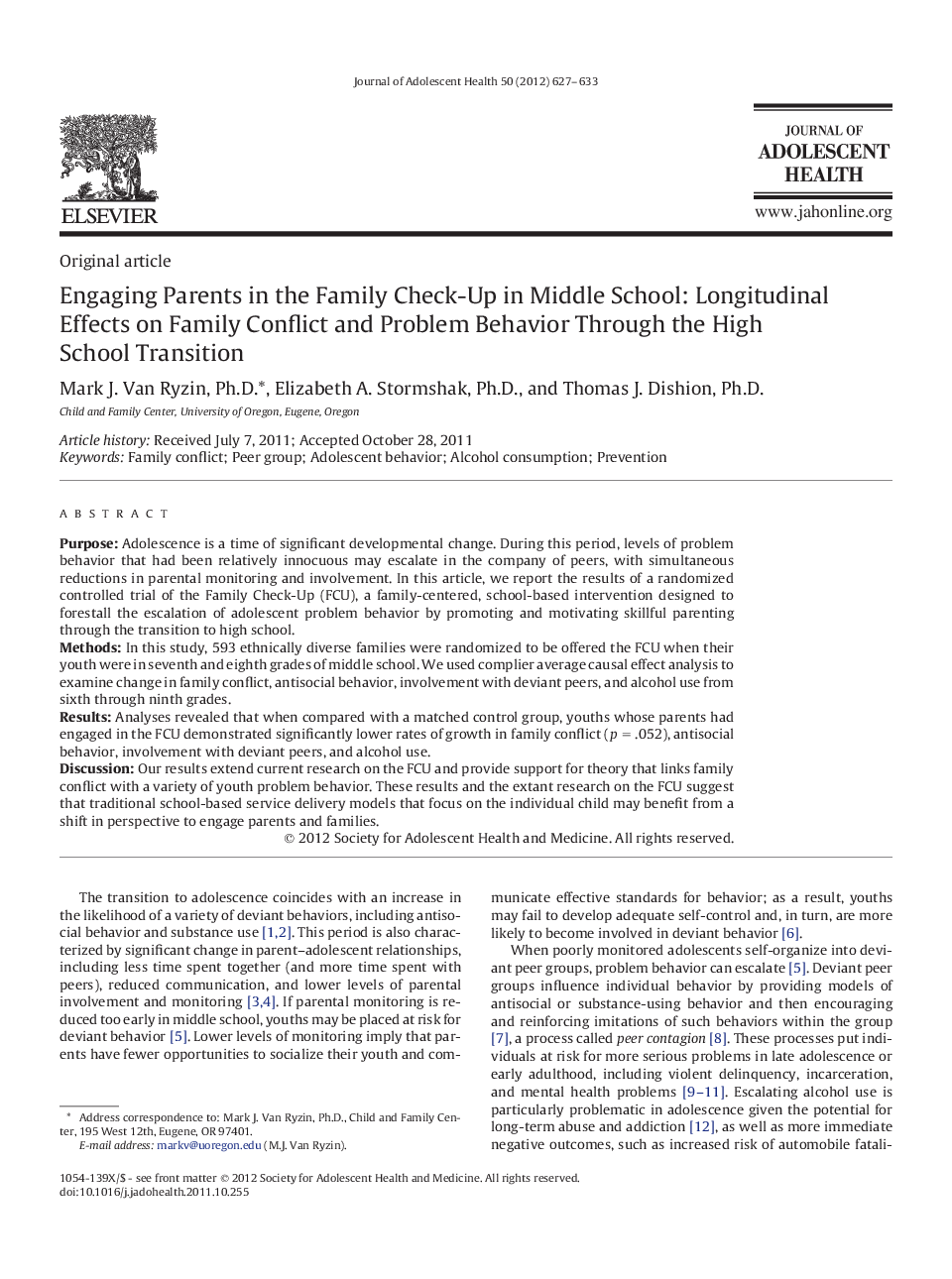| Article ID | Journal | Published Year | Pages | File Type |
|---|---|---|---|---|
| 1079463 | Journal of Adolescent Health | 2012 | 7 Pages |
PurposeAdolescence is a time of significant developmental change. During this period, levels of problem behavior that had been relatively innocuous may escalate in the company of peers, with simultaneous reductions in parental monitoring and involvement. In this article, we report the results of a randomized controlled trial of the Family Check-Up (FCU), a family-centered, school-based intervention designed to forestall the escalation of adolescent problem behavior by promoting and motivating skillful parenting through the transition to high school.MethodsIn this study, 593 ethnically diverse families were randomized to be offered the FCU when their youth were in seventh and eighth grades of middle school. We used complier average causal effect analysis to examine change in family conflict, antisocial behavior, involvement with deviant peers, and alcohol use from sixth through ninth grades.ResultsAnalyses revealed that when compared with a matched control group, youths whose parents had engaged in the FCU demonstrated significantly lower rates of growth in family conflict (p = .052), antisocial behavior, involvement with deviant peers, and alcohol use.DiscussionOur results extend current research on the FCU and provide support for theory that links family conflict with a variety of youth problem behavior. These results and the extant research on the FCU suggest that traditional school-based service delivery models that focus on the individual child may benefit from a shift in perspective to engage parents and families.
